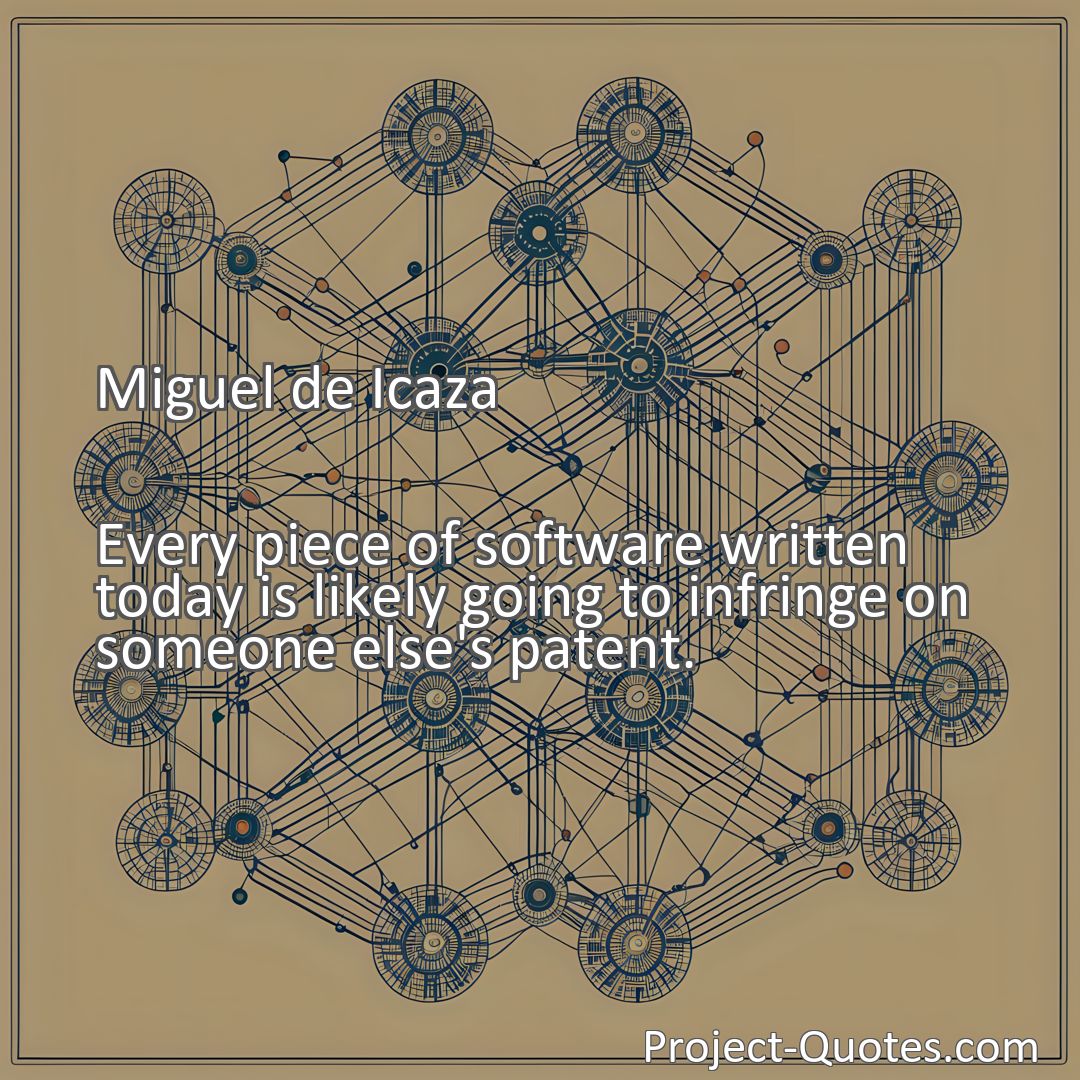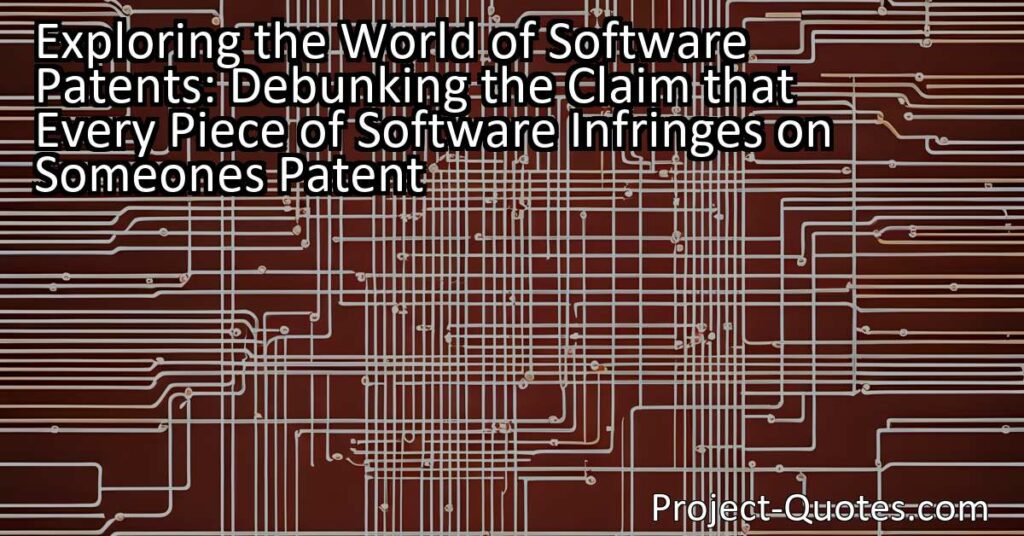Every piece of software written today is likely going to infringe on someone else’s patent.
Miguel de Icaza
Exploring the World of Software Patents: Debunking the Claim that Every Piece of Software Infringes on Someone’s Patent Delve into the world of software patents and discover the truth behind the claim that every piece of software infringes on someone else’s patent. Learn how the complexity of technology and unintentional infringements pose challenges for developers, sparking debates about the effectiveness and necessity of software patents.
Table of Contents
Meaning of Quote – Every piece of software written today is likely going to infringe on someone else’s patent.
Have you ever wondered how the software you use on a daily basis comes to life? How do developers create programs that enable us to browse the internet, play video games, or even write a document? Well, according to Miguel de Icaza, a renowned software engineer, it turns out that every piece of software written today is likely going to infringe on someone else’s patent. Let’s delve into this intriguing claim and explore the world of software patents.
First, let’s break down the quote by Miguel de Icaza. When he says, “Every piece of software written today,” he is referring to all the programs, applications, and tools that developers create using programming languages. These could include anything from operating systems like Windows or macOS to mobile apps such as Instagram or TikTok.
Now, what exactly is a patent? A patent is a legal protection granted to inventors for their new and innovative inventions. In the context of software, a software patent is a type of patent that protects intellectual property related to computer programs and algorithms. It gives the patent holder exclusive rights to use, sell, or license the patented software, preventing others from using it without permission.
The concept of software patents has been a subject of debate and controversy for several years. Advocates argue that patents encourage innovation by rewarding inventors for their unique ideas, allowing them to recoup costs and generate income. On the other hand, critics believe that software patents stifle creativity and hinder technological progress. They argue that patents do not fit well within the ever-evolving and collaborative nature of the software industry.
One of the main challenges when it comes to software patents is the sheer complexity of technology. Nowadays, software is composed of numerous lines of code, interacting with various components and systems. This complexity often leads to unintentional infringement. In other words, developers may unknowingly use or recreate a patented technology while building their own software.
To put it in perspective, imagine you are building a new house. You have your own unique design and ideas for the house, but as you start construction, you realize that you unintentionally used a patented building technique. Even though you were not aware of the patent, you could still be held accountable for infringing on someone else’s patent rights.
Similarly, software developers face the risk of infringing on existing software patents while implementing new features or functionalities. This can become a significant obstacle, as it increases the legal and financial risks associated with software development. In fact, many large software companies have been involved in high-profile patent infringement lawsuits, resulting in substantial settlements or damage awards.
Given the complex nature of technology and the prevalence of software patents, one might wonder how developers manage to navigate this legal minefield. In many cases, it is virtually impossible for developers to identify and avoid all potential patent infringements. As a result, some argue that software patents have created an environment of “patent trolls” entities that hold patents solely for the purpose of suing others for infringement, without actually producing any tangible products or services.
This reality raises questions about the effectiveness and necessity of software patents. Should patent laws be reevaluated to better accommodate the rapidly evolving software industry? Can alternative forms of intellectual property protection, such as copyrights or trade secrets, provide a more suitable framework for software innovation?
In recent years, there have been calls for patent reform to address these concerns. Some argue for stricter examination standards for software-related patents to ensure that only truly innovative inventions receive protection. Others propose shorter patent terms or the implementation of specialized patent courts to better handle patent disputes.
Additionally, open-source software movements have gained popularity as a way to bypass some of the challenges posed by software patents. Open-source software refers to programs whose source code is publicly accessible, allowing anyone to use, modify, and distribute it freely. By sharing their code openly, developers can avoid potential patent infringements, as the patent holders would also need to release their patented technology for the software to be used freely.
In conclusion, when Miguel de Icaza claimed that every piece of software written today is likely going to infringe on someone else’s patent, he shed light on the complex and often contentious issue of software patents. The rapid advancement of technology, combined with the intricate nature of software development, makes it challenging for developers to avoid unintentional infringement. This has led to a significant legal and financial burden on the software industry and has sparked debates about the effectiveness and necessity of software patents. As the software industry continues to evolve, it is crucial for policymakers, legal experts, and stakeholders to come together and find a balanced solution that promotes innovation while ensuring fair protection of intellectual property rights.
I hope this quote inspired image brings you hope and peace. Share it with someone who needs it today!


